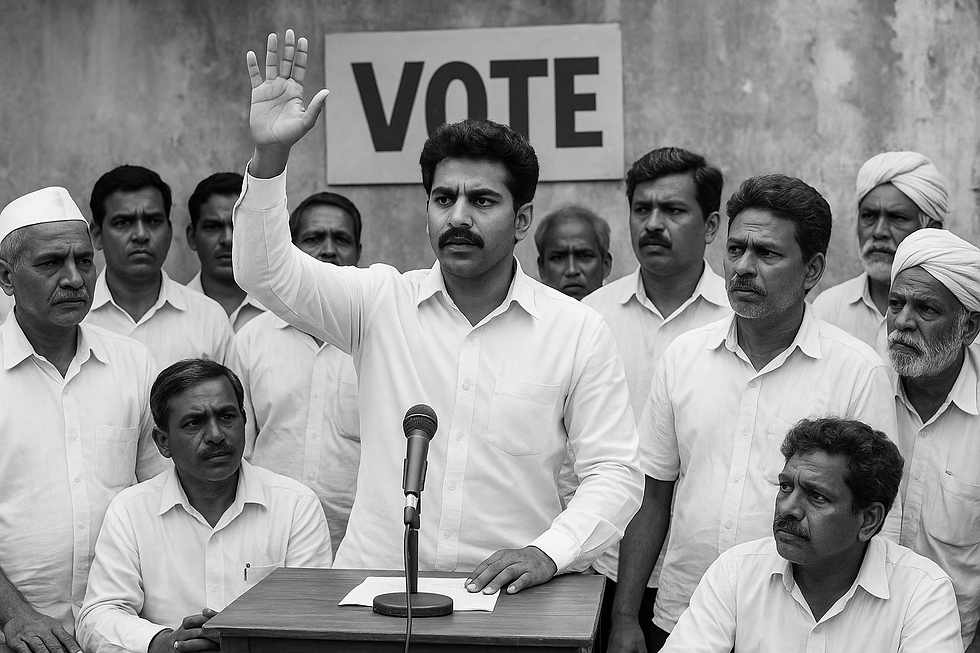A Taxpayer’s Vested Rights Cannot Be Retrospectively Altered – Supreme Court Strikes Down Rule 21(8) of Punjab VAT Rules
- Chintan Shah

- Feb 18, 2025
- 4 min read
Summary of the Judgment
Case Name: State of Punjab & Ors. v. Trishala Alloys Pvt. Ltd. & Ors.
Date of Judgment: 17th February 2025
Court: Supreme Court of India
Judges: Hon'ble Justice Abhay S. Oka and Hon'ble Justice Ujjal Bhuyan
Appellants: State of Punjab & Ors.
Respondents: Trishala Alloys Pvt. Ltd. & Ors.
Advocates: Senior Counsel representing the State and corporate legal representatives for the respondent companies
Relevant Acts & Sections:
Punjab Value Added Tax Act, 2005 (Punjab VAT Act) (Section 13, Section 70)
Punjab Value Added Tax Rules, 2005 (Rule 21(8))
Cited Judgments:
Eicher Motors Ltd. v. Union of India, (1999) 2 SCC 361
Sedco Forex International Drill INC. v. Commissioner of Income Tax, Dehradun, (2005) 12 SCC 717
Commissioner of Central Excise, Patna v. New Swadeshi Sugar Mills, (2016) 1 SCC 614
Jayam and Company v. Assistant Commissioner, (2016) 15 SCC 125
Background and Facts
The case revolves around the Punjab Value Added Tax Act, 2005 (Punjab VAT Act) and the rules formulated under it, particularly the insertion of Rule 21(8) in the Punjab VAT Rules, 2005, which limited the input tax credit (ITC) on stock held as of 31st January 2014 to the reduced tax rate effective from 1st February 2014. The core dispute in this appeal was whether Rule 21(8) could be validly introduced in January 2014 when no enabling statutory provision existed in the parent Act.
The High Court of Punjab and Haryana had ruled in favour of Trishala Alloys Pvt. Ltd. and other respondents, striking down Rule 21(8) as being ultra vires the Punjab VAT Act. The State of Punjab appealed against this decision before the Supreme Court.
Key Legal Issues
Whether Rule 21(8) of the Punjab VAT Rules, 2005 was valid when it was introduced before an enabling provision was incorporated into the Punjab VAT Act.
Whether the reduction in ITC for stocks purchased at a higher tax rate but sold at a later reduced rate was legally justified.
Whether the principle of vested rights in taxation applied to the respondents.
The applicability of the doctrine of legislative competence and delegated legislation.
Court’s Observations and Reasoning
1. Absence of Enabling Provision in the Parent Act
The Supreme Court upheld the High Court's ruling that at the time of the insertion of Rule 21(8) on 25th January 2014, there was no statutory provision empowering the State to link ITC to a lower tax rate for stock already acquired at a higher tax rate.
“On the date of introduction of sub-rule (8) of Rule 21 of the Rules, the State did not possess any power emanating from the Act to confine the availing of input tax credit to the reduced rate of tax on stock in trade.”
The Court reasoned that the first proviso to Section 13(1) of the Punjab VAT Act, which enabled such a restriction on ITC, was only introduced on 1st April 2014. Therefore, any rule limiting ITC before this statutory change was ultra vires.
2. Vested Rights of Taxpayers and Retroactive Changes
The Supreme Court referred to its judgment in Eicher Motors Ltd. v. Union of India (1999) 2 SCC 361, which held that taxpayers’ accrued benefits under a tax law cannot be retrospectively altered without express statutory authority.
“A taxable person who had stock in trade as on 25.01.2014 had already paid tax while purchasing such goods. The State cannot retrospectively diminish the ITC entitlement linked to transactions that had already been concluded.”
The Court reaffirmed that the respondents had acquired ITC under the law applicable at the time of purchase, and thus, any subsequent limitation on such ITC was unconstitutional unless backed by a statutory amendment.
3. Principles of Delegated Legislation
The State of Punjab argued that Rule 21(8) was a valid exercise of delegated legislative power under Section 70 of the Punjab VAT Act, which authorizes the government to make rules for implementing the Act. However, the Supreme Court rejected this argument, citing Sedco Forex International Drill INC. v. Commissioner of Income Tax, Dehradun (2005) 12 SCC 717, which established that rules cannot override the parent statute or take effect before a corresponding amendment in the statute itself.
“While the State retains the power to impose tax and limit tax benefits, such powers must be exercised within the bounds of legislative competence. Rule 21(8) was inserted before the parent Act permitted such a restriction, rendering it void.”
4. Effect of the 2014 Amendment to Section 13(1) of Punjab VAT Act
The Punjab VAT Act was subsequently amended on 1st April 2014 to explicitly permit the reduction of ITC to the lower prevailing tax rate. The Court acknowledged that this amendment was lawful but held that it could not operate retrospectively to validate Rule 21(8) before the statutory amendment came into force.
“The amendment to Section 13(1) was not retrospective. Therefore, Rule 21(8) could not take effect from 1st February 2014, and ITC on stock-in-trade prior to 1st April 2014 should remain unaffected.”
Final Judgment and Conclusion
The Supreme Court dismissed the State’s appeal, ruling that:
Rule 21(8) of the Punjab VAT Rules, 2005 was ultra vires the Punjab VAT Act when introduced on 25th January 2014.
The respondents were entitled to ITC at the higher tax rate applicable at the time of purchase.
The amendment to Section 13(1) of the Punjab VAT Act, effective from 1st April 2014, was prospective and could not retroactively justify Rule 21(8).
The High Court’s decision quashing Rule 21(8) was legally sound and did not warrant interference.
This ruling reinforces the importance of legislative competence, the principle of non-retrospective taxation, and the protection of vested rights in tax law. The judgment is particularly significant for businesses and tax practitioners dealing with VAT and GST regulations, as it reaffirms that any limitation on tax benefits must be backed by clear statutory authority.



Comments